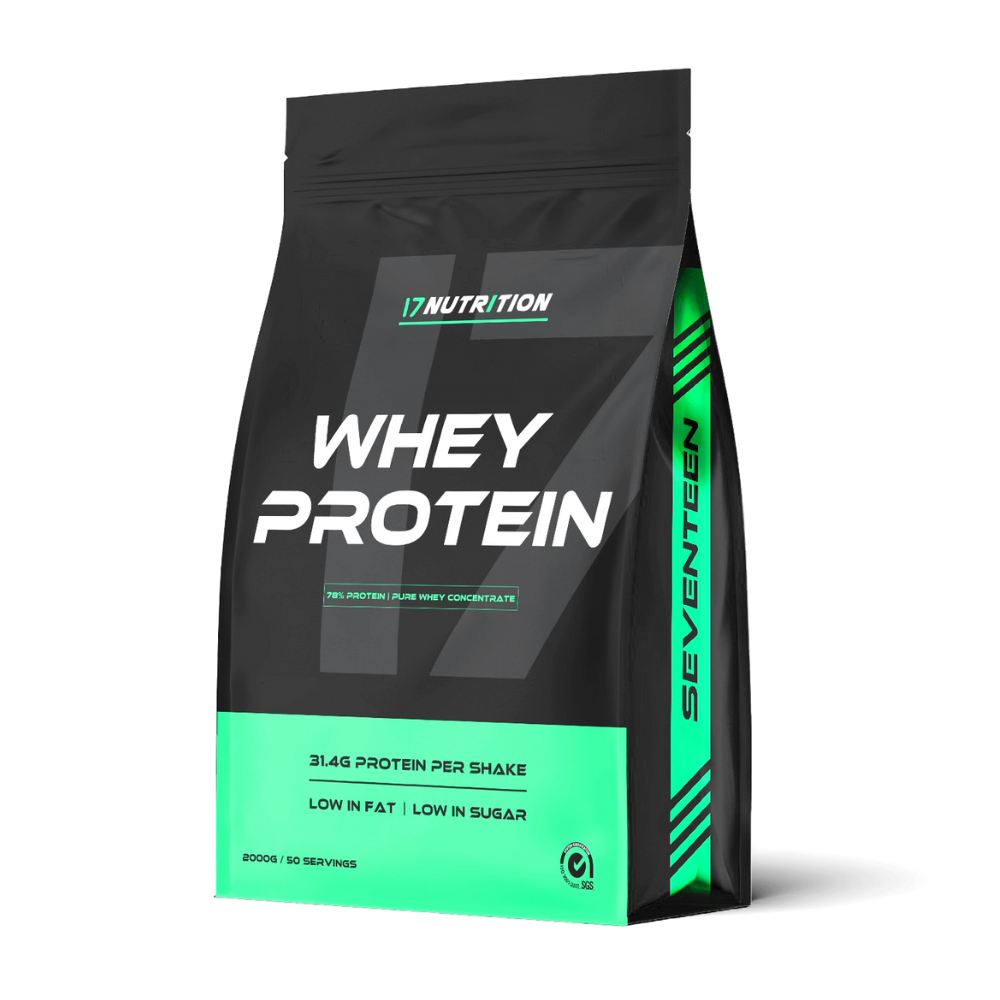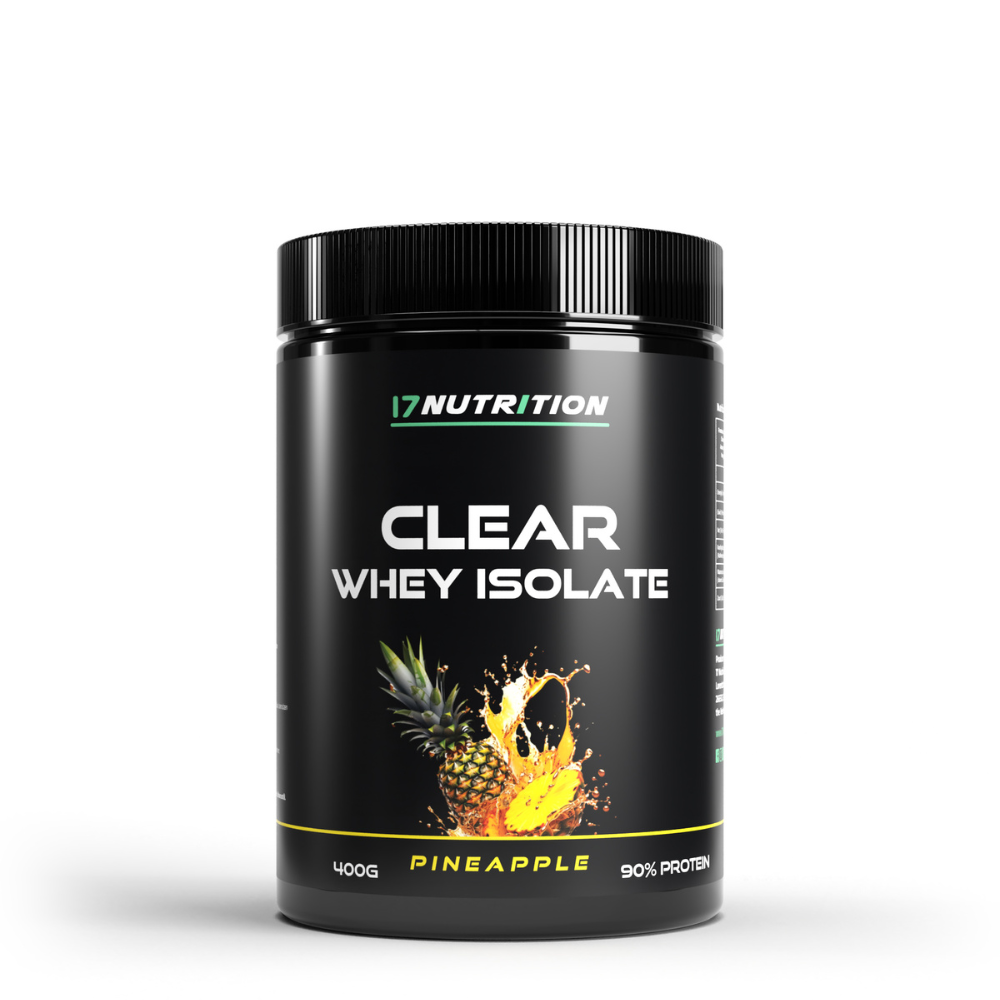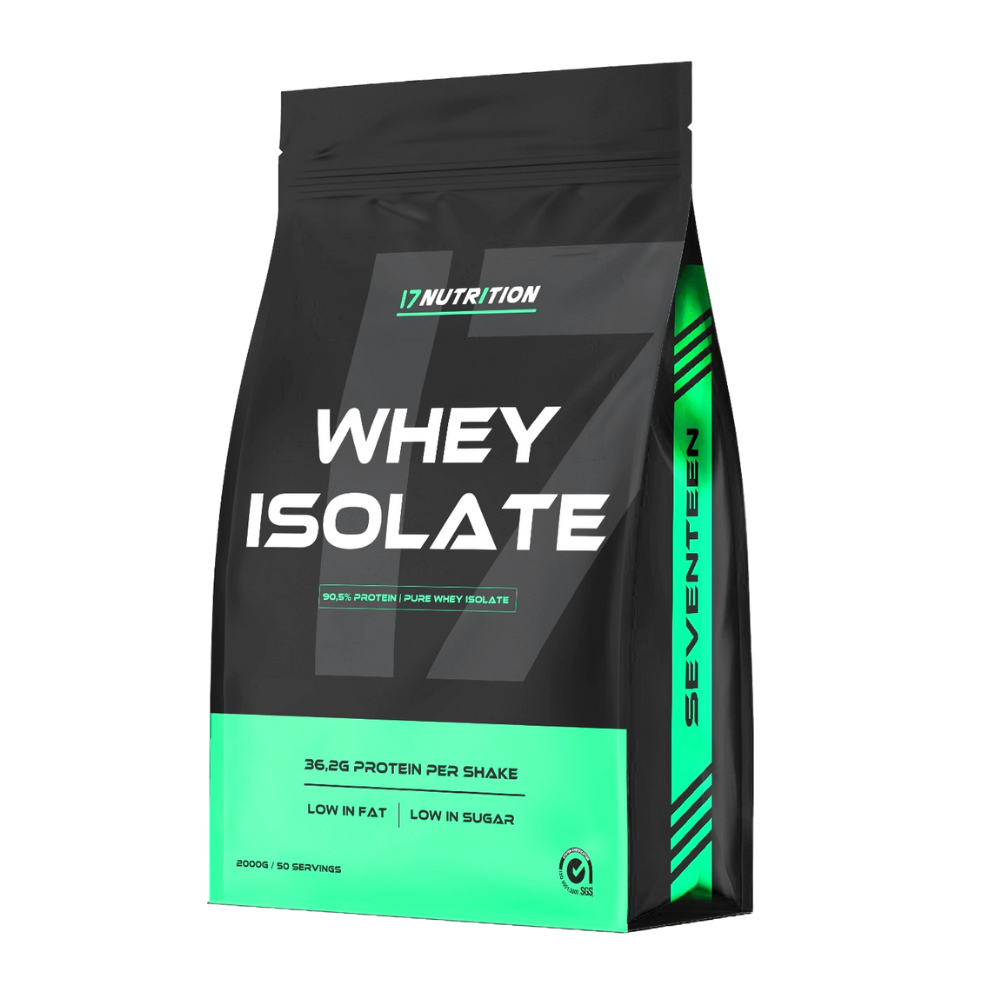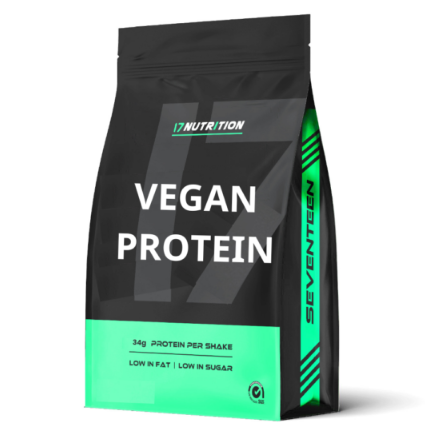Proteins
Choose 17 Nutrition for guaranteed quality and results. Our products are carefully formulated and meet the highest industry standards. Take advantage of our competitive prices now and give your workouts a boost with our tasty and effective whey protein products!
Category
Proteins
Need help?
What is a protein shake?
The name says it all, they are shakes with a high protein content. It is a powder that is mixed with water or milk. Everyone needs protein to keep the body functioning properly. Athletes even need extra protein to repair muscles, and to build extra muscle mass. You take in protein every day from your diet. But if not enough protein is absorbed from the diet, it is wise to consume a protein shake.
Should I use a protein shake?
The recommended daily protein intake from normal food is 0.8 - 1 gram of protein per kg of body weight. However, this is not accurate because age and how active you are have a big influence on this. Below is an overview to calculate your protein requirement! Should you not reach the recommended protein intake? Then we recommend a protein shake.
| Groups | Grams of protein per KG body weight |
Non athletes | 0,8 |
Athletes | 1,5 |
| Strength athletes | 1,8 |
| Weight losers | 1,8 |
| Vegetarian/vegan | 1,3 |
| Pregnancy | 0,9 |
| Breastfeeding | 1 |
| Senior citizens (70+) | 1 |
For example: A strength athlete with a body weight of 70kg needs 70 x 1.8 grams of protein = 126 grams of protein per day.
What does 'Whey' mean?
Proteins can be obtained from various sources such as dairy, plants, and meat. However, this does not mean that every protein is equally effective for muscle recovery and growth; it depends on the amino acids a protein contains. Whey Protein contains the highest percentage of essential amino acids and is therefore the most effective for muscle recovery and growth. This is because the composition of whey protein closely resembles the composition of our own muscles in terms of amino acids.
"But what is whey exactly? Whey is a byproduct of cheese production, a cloudy liquid rich in proteins. It is filtered and dried until a pure powder remains with a high protein content. We process this end product into our whey protein shakes.
Which type of protein shake is most suitable for me?
We offer 3 types of whey protein shakes. The most suitable one for you depends on your goals and budget. Below, you can easily compare the shakes:
Whey Protein | Whey Isolate | Clear Whey Isolate | |
Protein | 79% | 90% | 92% |
Kcal (per 100g) | 406 | 386 | 384 |
Carbohydrates | 9.7% | 1.6% | 0.4% |
Fat | 7% | 0.55% | 0.1% |
Lactose | 4.2% | 1.6% | 0.4% |
Price (per KG) | €14,99 | €18,99 | €26,99 |
17 nutrition
17 Nutrition is a Dutch brand that offers a wide range of high-quality protein products, including protein powder, whey protein, and protein shakes. Since we know that quality is of the utmost importance when it comes to protein powder, we only select the highest quality raw materials for our products. After approval by a team of specialists with years of experience in the nutrition industry, the protein powders are ready for consumption, ensuring that you get the energy you need.
Is Whey Protein Unhealthy?
Maintaining your protein needs is very important. 20% of the total body is made up of proteins. A lack of protein can lead to muscle breakdown, hair loss, shortness of breath, and eczema. For most people, whey protein is a healthy solution to maintain protein levels. However, it may not be ideal for some people. It does contain lactose, which can cause digestive issues or other problems for some people. For these individuals, it is recommended to use isolate or clear whey. These are specially filtered types of Whey that contain little to no lactose.
Basic Whey Protein is therefore a healthy product that can be very functional, but sometimes substances are added to improve the taste, color, and texture. Some of these substances are not healthy, so it is important to always check the ingredient list. We add as few extra substances as possible to keep the shake as healthy as possible. We do not use thickeners that make the shake milkshake-like and use as few colorants as possible.
What are Proteins?
Proteins are a combination of large and complex molecules that play an important role in the functioning of the body. They act as structural components of cells, enzymes, hormones, and other molecules. Proteins consist of long chains of amino acids that are responsible for the development of muscles and bone density, and they also help regulate hormones and enzymes. As proteins are broken down during digestion, they also provide energy for the body.
Where are Proteins Found?
Proteins are essential: without them, your cells and organs could not function properly. They are commonly found in foods such as meat, fish, eggs, dairy products, legumes, nuts, and seeds. Additionally, proteins are available in various forms – as powders, bars, or drinks, each of which can be used to supplement your diet.
Why Do We Need Proteins?
Everyone needs proteins, mainly because they are an essential nutrient. Your body relies on a regular supply of proteins from food sources to meet daily needs. The protein undergoes a cycle of synthesis, meaning your body constantly breaks it down, uses it, and eliminates it, emphasizing the importance of adequate protein intake.
As important macronutrients for muscle building, they play a role in almost every process in your body. Proteins keep your immune system healthy. The immune system uses specialized proteins called antibodies or immunoglobulins to protect itself against infections. Antibodies are specifically produced and released in response to harmful pathogens entering the body – such as bacteria and viruses.
Proteins also help in tissue repair. Amino acids, the building blocks of proteins, help grow and maintain tissues in all parts of the body, including:
- Blood vessels
- Bones
- Muscles
- Tendons
- Skin
- Hair and nails
Therefore, in certain important life stages, such as childhood and during pregnancy, sufficient protein intake is especially important for healthy growth. Proteins also help in faster recovery of tissues and cells in case of injury or illness.







